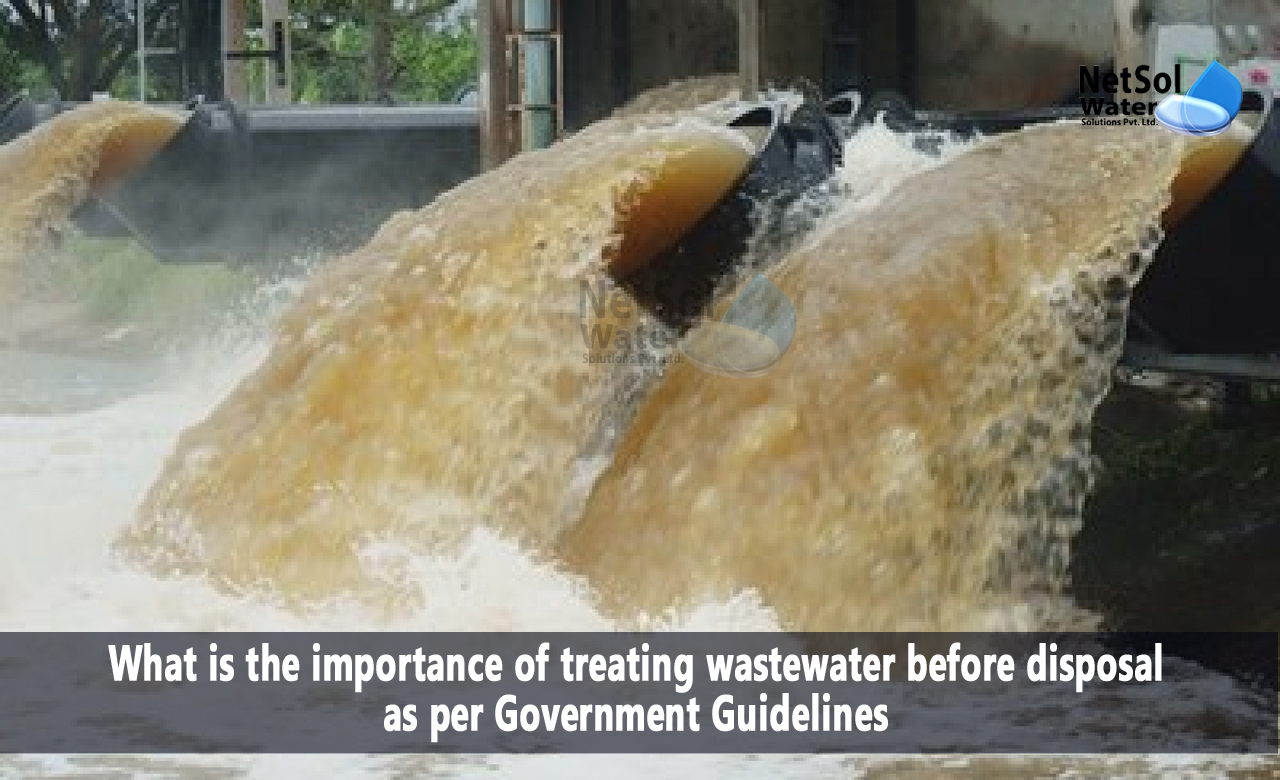Government Guidelines: Wastewater should be treated before disposal
Urban water supply and sanitation are fundamental human necessities for raising living standards, and boosting workers' productivity. Urban regions use water from rivers, streams, wells, and lakes for industrial and domestic reasons. Almost, 80% of the water provided for home usage is wasted. If wastewater is not treated, it either seeps into the ground or potentially contaminates the groundwater, or it is released into the natural drainage system, which contaminates areas downstream.
In this blog, we'll talk about the rules the government has put in place for treating wastewater, before releasing it into the environment.
Why is wastewater treatment a significant concern in India?
Worldwide, rising water insecurity, flooding, and contamination of water resources, provide huge difficulties to water management systems. 80% of sewage is released without treatment. The present SDG goals for the wastewater sector are not addressed by the "networked city" model, and it is insufficient for the challenges and realities. Insufficient sanitation, declining water quality, and increasing water stress are believed to be the result of poly-centric and integrated approaches, which include nature-based solutions, community-scale systems, and community-managed systems.
The treatment of wastewater remains a significant concern in India, particularly in the country's expanding metropolitan areas. More than half of the nation is under high to extremely high water stress, and future forecasts depict an even bleaker picture of water supply. It is urgently necessary to have an integrated perspective on the wastewater and water supply sectors.
What is the importance of treating wastewater as per guidelines provided by govt. of India?
Reuse policies, Zero Liquid Discharge, the Water (Prevention and Control of Pollution) Act of 1974, and the Environment Protection Act of 1986 are some of the laws, which have been made in India for protecting water.
1: The Water (Prevention and Control of Pollution) Act of 1974 contains the governing legislative and institutional provisions. Government entities have expressed interest in centralised water reuse due to the rapidly diminishing fresh and groundwater resources. According to reports, 50% of the wastewater produced in Indian cities will either be indirectly reused, or is already being done so without treatment.
2: In India, common reuse includes forestry, horticulture, flushing toilets, industrial use (such as cooling towers), fish farming, and many indirect advantages. Wastewater management demands the incorporation of numerous disciplines and viewpoints, because wastewater is a valuable resource and a vital pillar of societal infrastructure.
3: Wastewater must be transported to sewage treatment facilities, where it is cleaned up to the aesthetic standards, necessary for receiving water bodies. The threats from domestic wastewater contamination and the rise in water insecurity in most Indian cities, are unlikely to be adequately controlled, by a rigid set of rules for discharge and reuse.
4: Water must be produced from all available resources, including wastewater, through recycling, recharging, and storage. It is also necessary to design plans and policies that give equal weight to the expansion of water supplies, and the construction of wastewater treatment facilities.
5: The problems are addressed by striving for nationwide treatment while establishing a solid evidence base, which will enable future laws to be more precise.
How can we assist?
It is crucial to handle wastewater properly because improper handling of wastewater can have a harmful impact, on both the environment and public health. With more than ten years of experience in the wastewater treatment sector, Netsol Water has a track record of successfully designing and supplying WWTPs.
We are the top producers who strictly adhere to the CPCBB's recommendations for wastewater treatment and its reuse. The design of our plants minimises the excessive water loss, which occurs while they are treating. We also specialise in Sewage Treatment Plants (STP), Commercial and Industrial RO Plants, Demineralization (DM) plants, and Water Softeners in addition to Effluent Treatment Plants (ETP).
To guarantee you get the most out of your equipment, we also offer installation, training, commissioning, and support. For further information or to make a product purchase, contact us at +91-9650608473 or drop a mail at enquiry@netsolwater.com



